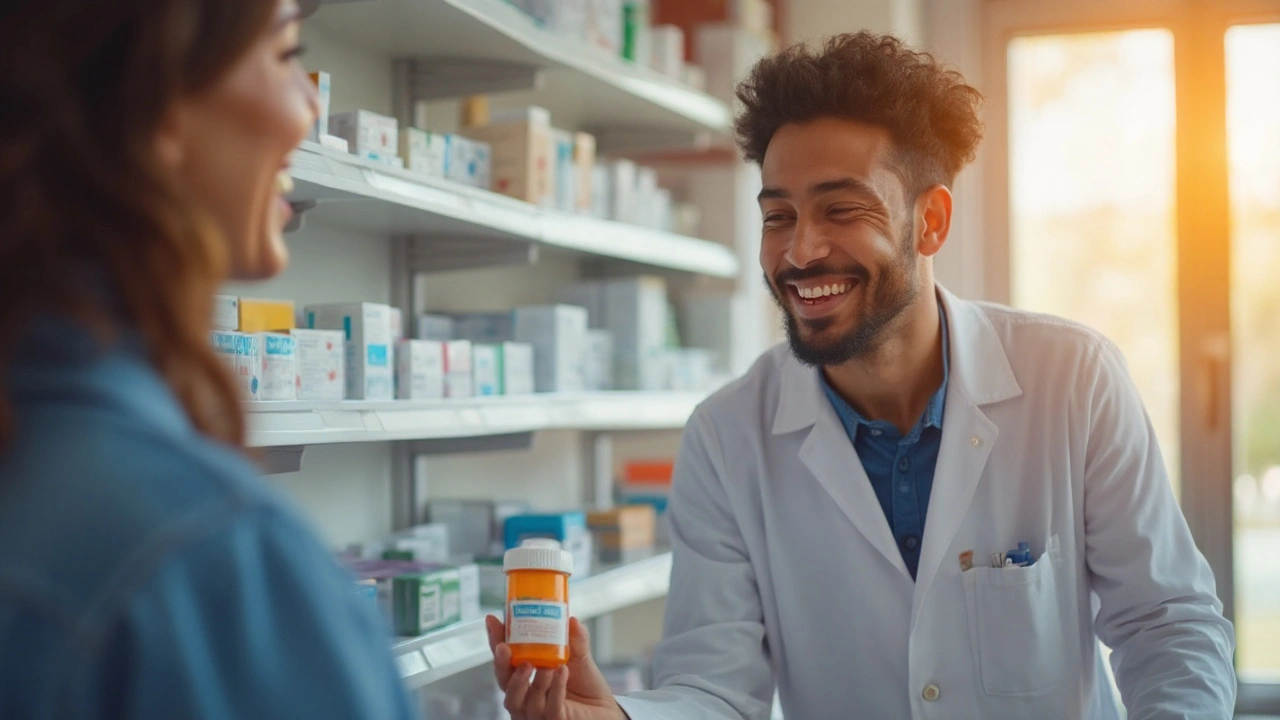
Ventodep ER: Complete Guide to Uses, Dosage, Side Effects and Safety
Everything you need to know about Ventodep ER - what it treats, how to take it, common side effects, drug interactions and safety tips, all in one easy guide.
21 Sep 2025When it comes to health, safety isn’t optional – it’s the first step. Whether you’re taking a prescription for chronic pain or ordering a migraine pill from an online shop, the same rules apply: verify, understand, and monitor. In this guide we’ll walk through easy ways to keep your meds safe, avoid scams, and stay on top of possible side effects.
First thing you should do is check the pharmacy’s credentials. Look for a visible license number, a physical address, and a pharmacist’s name on the site. If the site advertises prices that seem too good to be true, it probably is. Compare the price with a known local pharmacy – huge discounts often hide counterfeit products.
Next, make sure the pharmacy requires a valid prescription. Legitimate sites will ask you to upload a doctor’s note or have a licensed practitioner review your request. If they simply ask for a credit card and ship the drug right away, walk away.
Read reviews from real users, but take them with a grain of salt. Look for patterns: many complaints about delayed shipments or unexpected side effects could signal a problem. Trusted pharmacies also offer secure payment methods and clear privacy policies. A quick Google search of the pharmacy’s name plus “scam” can reveal red flags.
Even with a reputable source, the medication itself needs careful handling. Start by confirming the drug name, dosage, and strength on the label – they should match what your doctor prescribed. If you’re unsure, call your pharmacy or doctor before you take the first dose.
Know the common side effects and drug interactions. For example, clonidine can lower blood pressure, so pairing it with other blood‑pressure meds may cause dizziness. A simple way to stay informed is to write down every pill you’re taking, including over‑the‑counter items and supplements, and review the list with a pharmacist.
Timing matters, too. Some medicines need to be taken with food, others on an empty stomach. Set reminders on your phone and keep a pill organizer to avoid missed or double doses. If a dose is forgotten, follow the instructions on the label – usually you take it as soon as you remember unless it’s almost time for the next dose.
Storage is often overlooked. Keep drugs in a cool, dry place away from direct sunlight. Certain meds, like insulin or certain antibiotics, lose potency if left in the bathroom or car. Check expiration dates regularly; a drug past its date can be less effective or even harmful.
Finally, watch for warning signs. If you notice new symptoms, a rash, or unusual fatigue, stop the medication and contact your healthcare provider right away. Many adverse reactions are mild if caught early, but some can become serious if ignored.
Safety is a habit, not a one‑time check. By verifying online pharmacies, understanding your meds, and staying alert to side effects, you protect your health and avoid costly mistakes. Keep this guide handy the next time you refill a prescription or explore a new supplement – your wellbeing depends on it.

Everything you need to know about Ventodep ER - what it treats, how to take it, common side effects, drug interactions and safety tips, all in one easy guide.
21 Sep 2025